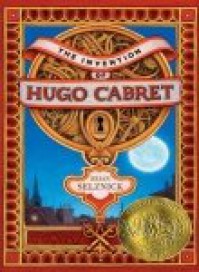Grimlock ♥ Ultra Magnus
I'm a well read grad student who's bluntly honest about all things, although I try to be most honest about myself.
Currently reading










Illuminating and Luminous book about Georges Méliès!

So, I'd seen Hugo when it first came out in the theaters, thought I should give this book a try, and promptly forgot about it until I saw it on the shelf of the library. I'm so glad I picked it up, though, because it was absolutely brilliant! It's a combination of text and illustrations and photographs that tell one story; while the narrative is straightforward in that it moves from one point to another, it's also wholly original in how it incorporates the images.
It's also a super quick read. It comes in at 500+ pages, including an acknowledgement in the back and a list of illustrations, movies that it references, what is historically accurate and what is original, and books and links to learn more about Méliès. I read at least fifty pages in a half hour, as some were illustrations, some were full pages of text, and some had barely a paragraph per page. But it was the mystery of Hugo Cabret's automaton - and yay, automaton! - that kept me turning the page as it intertwined with Méliès and his family.
And this story is as magical as it depicts films as being, it is, in fact, like dreaming during the day. Or night. Whenever you're reading it. The illustrations are lush, and fitting to each scene, ranging from quiet desperation, to rage, to a brilliant ecstasy that is mirrored in how bright the scenes become. The story is brilliantly told, detailed, carefully plotted, the characters all coming to what feels like an inevitable conclusion. And it's all about a French filmmaker! I'm half-French so I have a particular interest in all things French, and it was a delight to read about the imagined life of one of the pioneers of cinematography, who happened to be French.
Even without that connection, there's enough of a story and a mystery to keep children and adults reading along, eager to find out what happens to Hugo. Five stars! Five stars are, in fact, not enough. Love, love, love.



 9
9
 7
7